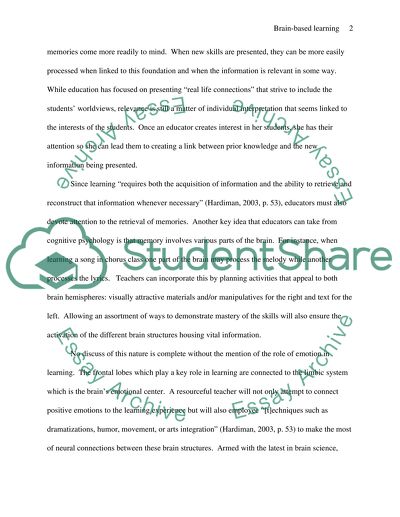Brain-based Learning Essay Example | Topics and Well Written Essays - 500 words. Retrieved from https://studentshare.org/miscellaneous/1522919-brain-based-learning
Brain-Based Learning Essay Example | Topics and Well Written Essays - 500 Words. https://studentshare.org/miscellaneous/1522919-brain-based-learning.


